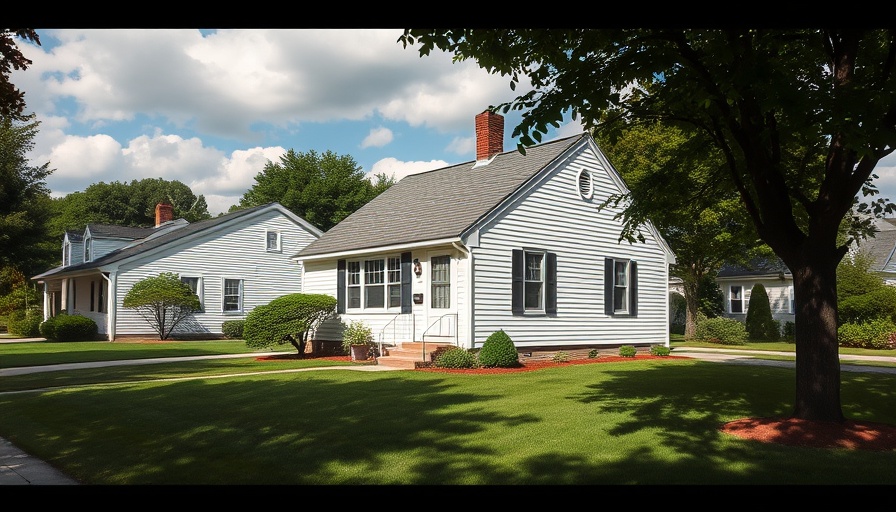
Understanding Appraisal Gaps in Today's Real Estate Market
In the competitive landscape of real estate, buyers often face a significant hurdle known as an appraisal gap. This term refers to the scenario where a home’s appraised value comes in lower than the agreed sale price, posing potential challenges for buyers. In markets with intense competition, like Los Angeles, Austin, and Chicago, approximately 8% of home appraisals fall short of the contract price. As buyers navigate this intricacy, understanding the mechanics behind appraisal gaps becomes essential for successful transactions.
Why Do Appraisal Gaps Occur?
Appraisal gaps are becoming increasingly common, driven by various factors:
- High Competition: In a race to secure homes, buyers may offer above-market prices, leading to discrepancies between sale and appraisal values.
- Rapid Price Increases: In hot markets, home prices can escalate quickly, while appraisals may rely on outdated sales data.
- Unique Customizations: Homes featuring unique upgrades or renovations might not have comparables in the area, complicating appraisal evaluations.
- Limited Sales Data: In neighborhoods with few recent transactions, appraisers may struggle to substantiate higher valuations.
- Emotional Bidding: Buyers often fall in love with a property, pushing them to stretch their budgets beyond fair market value.
Navigating the Appraisal Process
Understanding how the appraisal process functions is key to mitigating the impacts of appraisal gaps. When you make an offer on a home, it's essential to know that lenders base their financing on appraised values, not the offer price. For instance, if you make an offer of $400,000 but the appraisal comes back at $380,000, the lender will finance based on the lower appraisal. This difference must then be covered out-of-pocket by the buyer or negotiated with the seller.
Strategizing Against Appraisal Gaps
Recognizing that an appraisal gap is not the end of the home buying journey is important. Here are some strategies to consider:
- Appraisal Gap Clauses: Including specific clauses in your purchase agreement can help dictate how the parties will handle any discrepancies between the offer and the appraisal.
- Building a Strong Offer: Offering a higher earnest money deposit may signal to sellers your seriousness, potentially motivating them to reconsider the price if an appraisal gap arises.
- Collaboration with Your Realtor: A knowledgeable real estate agent can help you find comparable sales data, refine your offer strategy, and negotiate terms that may protect you in the event of a gap.
Future Trends in the Real Estate Market
Looking ahead, buyers should be aware of evolving market dynamics that could impact real estate transactions. As new construction homes and condominiums enter the market, buyers may find themselves in environments where appraisal gaps are minimized through accurate pricing strategies early in the selling process. Furthermore, increased availability of real estate data through advanced analytic tools could lead to adjustments in how appraisals are conducted, potentially reducing frequently emerging gaps in valuations.
Conclusion: Taking Proactive Steps in Your Home-Buying Journey
In conclusion, understanding appraisal gaps is crucial for today's homebuyers. By knowing how appraisal processes work, recognizing the causes of appraisal gaps, and implementing strategies to navigate these situations, buyers can protect their interests and make informed decisions throughout their real estate journey.
 Add Row
Add Row  Add
Add 



Write A Comment